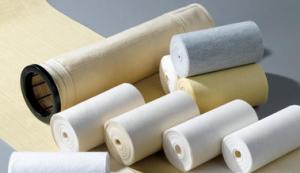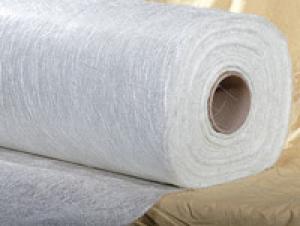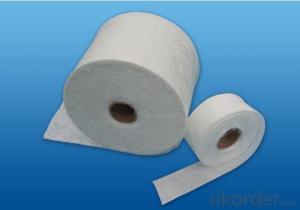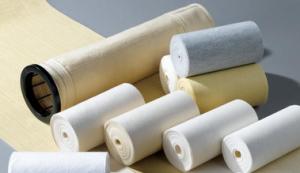FIBERGLASS STITCHED MAT 300g
OKorder Service Pledge
OKorder Financial Service
You Might Also Like
Structure of FIBERGLASS STITCHED MAT Description
The stitched mat is made of chopped strand which randomly dispersed and be stitched together by polyester thread. The width is available from 150-2400mm.Density of mat generally is 300-600g/m2.
The product is compatible with Polyester resin, vinyl ester resin, and epoxy resin.
Stitched mat is mostly primarily in pultrusion, RTM, filament winding, compression molding and hand lay up processes.
It is widely used in pipe lining, pultrusion section, storage tanks, FRP boat, insulation panel etc.
Main Features of FIBERGLASS STITCHED MAT
◎ Uniform thickness, good wet tensile strength retention.
◎ Good mould-ability, good drapability and easy operation.
◎ Good wet out speed and high efficiency in production.
FIBERGLASS STITCHED MAT Images
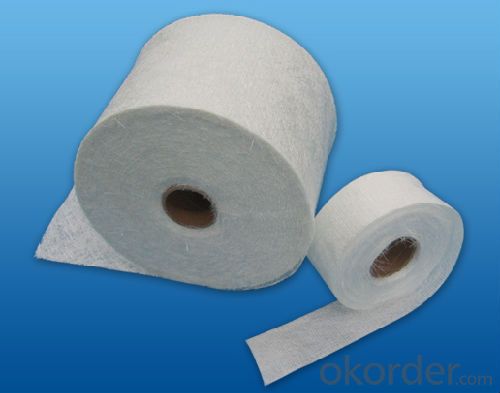
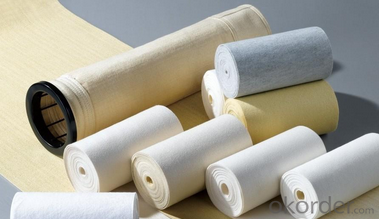
FIBERGLASS STITCHED MAT Specification:
Code | Density(g/m2) | Chopping layer density g/m2 | Width mm |
EMK225 | 225 | 225 | 150~2600 |
EMK250 | 250 | 250 | 150~2600 |
EMK300 | 300 | 300 | 150~2600 |
EMK450 | 450 | 450 | 150~2600 |
EMK600 | 600 | 600 | 150~2600 |
FAQ of FIBERGLASS STITCHED MAT
1. Why Choose us?
CNBM is a stated own company, provide the guarantee for the best quality, best service and safety business.
2. How will we guarantee the quality?
a, ISO 9001-2008 quality control system;
b, Strict and regular quality control in production;
c, Inspeciation when loading into container before shippment;
d, Sample stock for one year for quality tracing and record.
3. What is your MOQ?
Our MOQ is one pallet.
4. Can you provide sample?
Yes, samples are in stock. we can offer free sample for you.
5. Payment terms?
We can accept L/C, T/T etc.
6. Do you offer OEM service?
Yes, we can print customers’ logo on the packaging;
And the size and specification can be produced and design according to your demand.
- Q:Can fiberglass mat tissue be used for HVAC ducting?
- HVAC ducting can indeed utilize fiberglass mat tissue. This lightweight substance is formed by bonding glass fibers with resin. Its exceptional thermal insulation qualities render it suitable for HVAC systems that prioritize temperature control. Moreover, fiberglass mat tissue boasts resistance against moisture and chemicals, assuring long-lasting durability in ducting applications. Its installation is hassle-free, and it can be tailored to fit varied duct sizes and shapes. All in all, fiberglass mat tissue emerges as a dependable and effective option for HVAC ducting.
- Q:Does fiberglass mat tissue require any special precautions during storage?
- Yes, fiberglass mat tissue does require some special precautions during storage. Fiberglass is a delicate material and can be easily damaged if not stored properly. Here are some precautions to consider: 1. Keep it dry: Fiberglass mat tissue should be stored in a dry and moisture-free environment. Moisture can cause the material to lose its strength and integrity. 2. Avoid direct sunlight: UV rays from sunlight can degrade fiberglass over time. Store the material in a cool, shaded area away from direct sunlight to prevent any damage. 3. Protect from dust and dirt: Fiberglass mat tissue should be stored in a clean and dust-free environment. Dust and dirt particles can get embedded in the material, making it less effective. 4. Avoid extreme temperatures: Extreme heat or cold can also affect the quality of fiberglass mat tissue. It is best to store it in a temperature-controlled environment to prevent any damage. 5. Use proper packaging: If the fiberglass mat tissue comes with packaging, it is recommended to keep it in its original packaging to provide an additional layer of protection. If not, consider using a durable and moisture-resistant wrapping material. By following these precautions, you can ensure that your fiberglass mat tissue remains in good condition during storage and is ready for use when needed.
- Q:Does fiberglass mat tissue provide any mold resistance?
- While fiberglass mat tissue alone does not possess natural mold resistance, its combination with other mold-resistant materials and proper construction techniques can aid in preventing mold. The fiberglass mat tissue itself may not resist mold growth, but it can be employed as a strengthening layer in mold-resistant building materials like mold-resistant drywall or sheathing. These materials are specifically engineered to hinder the growth of mold and mildew by incorporating additives or coatings. It is also crucial to guarantee the correct installation and upkeep of these materials to minimize moisture accumulation and establish an unfavorable setting for mold to thrive.
- Q:What is the dimensional stability of fiberglass mat tissue?
- The dimensional stability of fiberglass mat tissue refers to its ability to maintain its size and shape under various conditions. Fiberglass mat tissue is known for its excellent dimensional stability, making it highly resistant to shrinking, expanding, or warping. This stability is achieved through the manufacturing process, which involves bonding glass fibers together using a binder material. This binder not only ensures the integrity of the mat tissue but also helps it maintain its dimensional stability over time. Additionally, the inherent properties of fiberglass, such as its high strength and stiffness, contribute to its exceptional dimensional stability. These characteristics make fiberglass mat tissue a popular choice in various applications, including construction, automotive, and aerospace industries, where consistent dimensions are crucial for optimal performance and durability.
- Q:Can fiberglass mat tissue be used for reinforcing pipes?
- Certainly, reinforcing pipes is indeed possible with the use of fiberglass mat tissue. Comprised of fine glass fibers that are randomly arranged, fiberglass mat tissue possesses remarkable strength and flexibility. Consequently, it becomes an optimal material for the reinforcement of various structures, such as pipes. As soon as it is applied to the pipe's surface, the fiberglass mat tissue significantly enhances its strength and durability, effectively averting the occurrence of cracks and leaks. Moreover, its resistance to corrosion renders fiberglass mat tissue suitable for implementation in pipes that transport corrosive substances. All in all, fiberglass mat tissue stands as a dependable choice for reinforcing pipes and ensuring their enduring performance.
- Q:What are the typical mechanical properties of fiberglass mat tissue?
- Fiberglass mat tissue possesses high tensile strength, stiffness, and dimensional stability, which are its typical mechanical properties. It is recognized for its remarkable ability to resist breakage and deformation when subjected to stress, making it suitable for applications that necessitate durability and structural integrity. Furthermore, it demonstrates good impact resistance, enabling it to endure external forces without substantial harm. Moreover, fiberglass mat tissue exhibits a low coefficient of thermal expansion, indicating that it is less susceptible to expanding or contracting due to temperature changes, resulting in enhanced dimensional stability. These characteristics render fiberglass mat tissue a favored choice in diverse industries like construction, automotive, and aerospace, wherein strength and reliability are pivotal considerations.
- Q:Is fiberglass mat tissue water-resistant?
- Yes, fiberglass mat tissue is water-resistant.
- Q:What are the applications of fiberglass mat tissue?
- Fiberglass mat tissue is a versatile material that finds numerous applications across various industries. Some of the key applications of fiberglass mat tissue are: 1. Construction and Building Materials: Fiberglass mat tissue is widely used in the construction industry as a reinforcement material. It is commonly used in the manufacturing of roofing shingles, insulation materials, and wall coverings. The strong and durable nature of fiberglass mat tissue enhances the structural integrity of buildings and improves their resistance to external elements such as wind, moisture, and temperature changes. 2. Automotive Industry: Fiberglass mat tissue is extensively used in the automotive sector for manufacturing various components such as door panels, headliners, trunk liners, and interior trim parts. The lightweight and high strength properties of fiberglass mat tissue make it an ideal material for reducing the overall weight of vehicles while maintaining their structural integrity. 3. Marine Industry: Fiberglass mat tissue is widely used in the marine industry for the production of boat hulls, decks, and other structural components. The corrosion-resistant nature of fiberglass mat tissue makes it suitable for marine applications where exposure to water and harsh weather conditions is common. 4. Pipe Manufacturing: Fiberglass mat tissue is used in the production of fiberglass reinforced pipes. These pipes find applications in various industries such as oil and gas, chemical, and water management. The high strength and corrosion-resistant properties of fiberglass mat tissue make it an excellent choice for manufacturing pipes that can withstand high pressure and harsh chemical environments. 5. Filtration Systems: Fiberglass mat tissue is used in the production of air filters and liquid filtration systems. The fibrous structure of the material allows for efficient filtration by trapping dust particles, dirt, and other contaminants. This makes fiberglass mat tissue a preferred choice for applications requiring high-efficiency filtration, such as HVAC systems, industrial air filters, and water treatment plants. Overall, the applications of fiberglass mat tissue are vast and diverse, ranging from construction and automotive industries to marine and filtration systems. Its unique properties make it an invaluable material for enhancing structural integrity, reducing weight, and improving performance across various sectors.
- Q:Can fiberglass mat tissue be used for acoustic insulation?
- Indeed, acoustic insulation can be achieved by utilizing fiberglass mat tissue. This lightweight material possesses remarkable sound absorption qualities, allowing it to proficiently absorb and diminish sound waves, thereby reducing noise levels and enhancing the acoustic atmosphere. In the realm of construction, fiberglass mat tissue is widely employed to insulate walls, ceilings, and floors in order to minimize noise propagation. Moreover, it finds application in the automotive sector and various other industries that demand sound insulation. With its exceptional porosity and fibrous composition, fiberglass mat tissue proves to be an optimal substance for sound wave absorption and attenuation, rendering it highly suitable for acoustic insulation purposes.
- Q:What is the expected lifespan of fiberglass mat tissue in chemical storage applications?
- The expected lifespan of fiberglass mat tissue in chemical storage applications can vary depending on several factors. These factors include the type of chemicals being stored, the concentration of the chemicals, and the specific conditions of the storage environment. Fiberglass mat tissue is commonly used in chemical storage applications due to its excellent resistance to corrosion and its ability to provide structural reinforcement. However, it is important to note that fiberglass mat tissue is not completely impervious to chemical degradation. In general, fiberglass mat tissue can withstand a wide range of chemicals and can have a relatively long lifespan when properly maintained. It is typically designed to last for several years, with some manufacturers offering warranties ranging from 10 to 20 years. However, certain aggressive chemicals or extreme storage conditions may accelerate the degradation process of fiberglass mat tissue. Chemicals with high acidity or alkalinity, extreme temperatures, or prolonged exposure to UV radiation can potentially reduce the lifespan of the material. To ensure the maximum lifespan of fiberglass mat tissue in chemical storage applications, it is essential to carefully select the appropriate type of fiberglass mat tissue that is specifically designed for the intended chemicals and storage conditions. Regular inspections, maintenance, and proper handling of the chemicals can also help extend the lifespan of the material. Ultimately, it is recommended to consult with the manufacturer or a qualified engineer to determine the expected lifespan of fiberglass mat tissue in a specific chemical storage application, as they can provide more accurate information based on the specific circumstances.
1. Manufacturer Overview |
|
|---|---|
| Location | |
| Year Established | |
| Annual Output Value | |
| Main Markets | |
| Company Certifications | |
2. Manufacturer Certificates |
|
|---|---|
| a) Certification Name | |
| Range | |
| Reference | |
| Validity Period | |
3. Manufacturer Capability |
|
|---|---|
| a)Trade Capacity | |
| Nearest Port | |
| Export Percentage | |
| No.of Employees in Trade Department | |
| Language Spoken: | |
| b)Factory Information | |
| Factory Size: | |
| No. of Production Lines | |
| Contract Manufacturing | |
| Product Price Range | |
Send your message to us
FIBERGLASS STITCHED MAT 300g
OKorder Service Pledge
OKorder Financial Service
Similar products
New products
Hot products
Hot Searches
Related keywords
